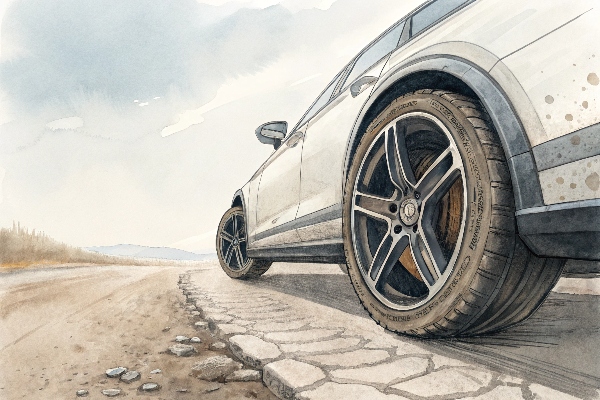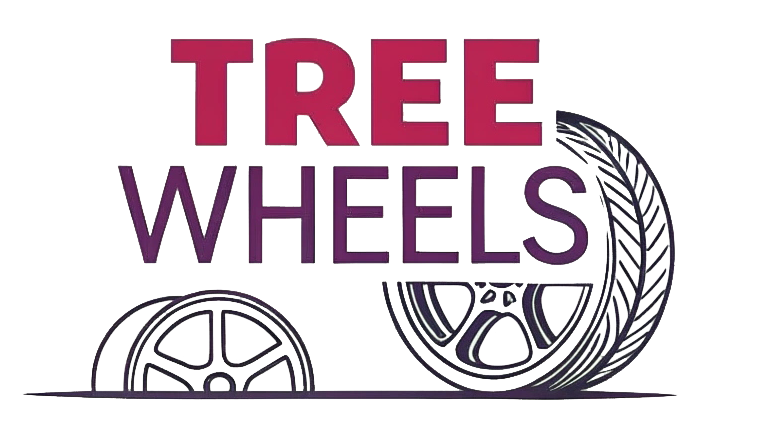Struggling with slow acceleration? You might wonder if alloy wheels can help. Do they truly boost your car’s speed?
Alloy wheels, being lighter than steel, reduce car weight, improving acceleration. Forged alloys are lighter than casting, offering even better performance.

I’ve seen alloy wheels transform cars at Tree Wheels. Let’s dive into how they affect acceleration.
Do Alloy Wheels Improve Performance?
Poor performance drags your drive. Can alloy wheels make your car faster and handle better? It’s a big question.
Alloy wheels enhance performance by reducing weight, improving acceleration, and sharpening handling compared to heavier steel wheels.

I helped a client upgrade his sports car’s wheels. Let’s explore why alloys shine.
Weight and Acceleration
Lighter wheels reduce your car’s mass. Per Newton’s second law (F=ma), less mass means higher acceleration for the same force. Alloy wheels, especially forged ones, cut weight significantly. My client’s car felt quicker off the line.
Handling Benefits
Alloys improve suspension response. Lighter wheels let your car react faster to turns. Forged alloys, being stronger, also resist flexing, sharpening control.
Performance Comparison
| Wheel Type | Weight | Acceleration | Handling |
|---|---|---|---|
| Steel | Heavier | Slower | Basic |
| Alloy (Casting) | Moderate | Better | Improved |
| Alloy (Forged) | Light | Best | Sharpest |
This table guided my client’s choice. Forged alloys suit performance cars, while casting alloys balance cost and gains. Check your car’s specs to ensure fit. Alloys can elevate your drive.
Is It Worth Upgrading to Alloy Wheels?
Upgrading wheels sounds exciting, but is it worth the cost? Wrong choice, and you waste money.
Alloy wheels are worth it for better acceleration, handling, and style, but weigh costs against your driving needs.

I’ve advised many clients on upgrades. Let’s break down the value.
Benefits vs. Cost
Alloys boost performance and aesthetics. They’re lighter, improving fuel efficiency and speed. But they cost more than steel. A client upgraded his sedan and loved the sportier feel, but budget matters.
Driving Needs
If you drive casually, casting alloys offer affordable gains. Performance drivers benefit from forged alloys. Consider how often you push your car’s limits.
Value Breakdown
| Factor | Alloy Wheels | Steel Wheels |
|---|---|---|
| Cost | Higher | Lower |
| Performance | Better | Basic |
| Style | Premium | Standard |
This table helps clients decide. If you crave style and speed, alloys are worth it. For basic commuting, steel may suffice. Match upgrades to your car and lifestyle.
What Is the Disadvantage of Alloy Wheels?
Alloy wheels seem perfect, but they have downsides. Ignore them, and you face unexpected issues.
Alloy wheels cost more, are prone to scratches, and may need pricier repairs compared to steel wheels.

I’ve seen clients hit snags with alloys. Let’s uncover the challenges.
Higher Costs
Alloys, especially forged, are expensive to buy and replace. Repairs for dents or scratches also cost more. A client once regretted alloys after curbing them repeatedly.
Durability Concerns
Alloys scratch easier than steel. Low-profile tires, often paired with alloys, wear faster and puncture more. Rough roads amplify these issues.
Drawback Summary
| Issue | Alloy Wheels | Steel Wheels |
|---|---|---|
| Cost | High | Low |
| Scratch Risk | Higher | Lower |
| Repair Cost | Expensive | Cheap |
This table clarifies risks for clients. If you drive on rough roads or prioritize savings, steel wheels might be better. Alloys shine for performance but demand care. Choose based on your roads and budget.
What Is the Advantage of 20-Inch Wheels Over 18-Inch Wheels?
Bigger wheels look cool, but do they perform better? Pick wrong, and your car suffers.
20-inch wheels offer sportier looks, better grip, and sharper cornering than 18-inch wheels for performance cars.

I upgraded a client’s SUV wheels. Let’s see why 20-inch wheels stand out.
Style and Presence
20-inch wheels give a bold, aggressive look. They fill wheel wells better, enhancing aesthetics. My client’s SUV turned heads with larger wheels, boosting his confidence.
Performance Edge
Larger wheels support wider tires, improving grip and cornering. This suits sports cars or spirited driving. But suspension must support the size to avoid issues.
Size Benefits
| Feature | 20-Inch Wheels | 18-Inch Wheels |
|---|---|---|
| Look | Bold, sporty | Standard |
| Grip | Better | Good |
| Cornering | Sharper | Adequate |
This table helped my client choose. 20-inch wheels excel for style and performance, but comfort may dip due to thinner tires. Verify your car’s compatibility before upgrading. Bigger can be better for the right car.
Conclusion
Alloy wheels boost acceleration and style but cost more. Choose what fits your car. Upgrade with Tree Wheels’ premium forged wheels today!



